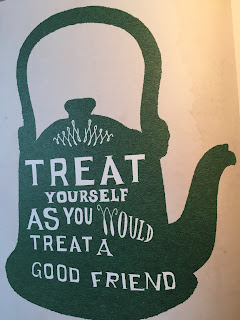Walk softly upon the earth.
May its beauty forever surround you,
Its wonders forever astound you,
May its wisdom delight you, its music invite you
To dance and to play and to sing.
May you love and be loved by all you meet.
May you know and practice compassion.
Rejoice in the earth and in all of creation.
Rejoice in life.
What a perfect blessing for springtime when the earth's beauty is newly fresh. I don't dance much but I do play and sing. And the world has been calling for our compassion. Well-honed by Covid, our empathy finds no lack of resting places, from Ukraine to the forest fires in New Mexico and beyond. There's even the new concept of empathy fatigue, as if God would allow us that excuse.
In 2008 composer and church musician Alfred V. Fedak (b. 1953) set this traditional text to music. It is a widely-performed anthem. I've seen the first line written as, "I walk softly upon the Earth" and previously thought about its many meanings and wondered what it might mean to each of us. What a good discussion topic this might make.
So how can we walk softly? Perhaps the meaning is ecological, like leaving no footprint from our hike or overnight camping. Perhaps it's camping itself instead of flying. Not trying to visit every remote corner of the planet. Or picking up neighborhood litter. Becoming or being a plant person. Not using pesticides, making our yards safe for bugs and birds and puppies.
Surely, indisputably, it's peace instead of war, one of those things over which we have so little control, especially right now when we want (need) to help the Ukrainian people. There's no idealism in a war zone.
But walking softly could also mean no tantrums when our way is thwarted, no snide remarks or pointless anger. Is Twitter anything else? It could mean no self-absorption, no secondary gain from everything we do, congratulating others instead of ourselves, making a space for others' footprints instead of our own. When we walk softly we make peace where we can, all those thousands of data points that don't include Vladimir Putin.
Much easier for most of us, is walking softly by reusing and recycling, loving our vintage jackets and purses, the hand-me-down china, the cedar chest, the bulky furniture that is more memory than style. Our grandson shops flea markets for cast-iron cooking skillets. Our niece is into vinyl--the 33 1/3 RPM records some of us (me) used to have. When you have as little as they, you tend to spend wisely.
Walking softly could also mean caring for whatever is old, including people--listening to the stories of the old who, in fact, are interesting if only we let them be. No one listened better to her grandmother than our daughter. Even now she could educate us on her grandma's life. Why is it that listening often skips a generation?
Walking softly certainly means being a good steward of our surroundings however large or small. Of our friendships, our marriages, our family relationships, and ourselves. Walking softly with those we love might mean not tallying, accepting apologies, even ones barely spoken. After all, we know the signs of sorrow. It might mean recognizing that anyone can change. Or falling in love again with the same person. Or admitting that the pandemic took a toll on our friendships and making extra effort.
How do we take care of ourselves softly? Maybe with love, nurture and tenderness. Not self-criticism. Change, certainly, but not scorn or disdain.
The third-to-the-last line of the blessing is "May you know and practice compassion." I'm suspecting that if we do this we will rejoice in life.
In peace, Nina Naomi








